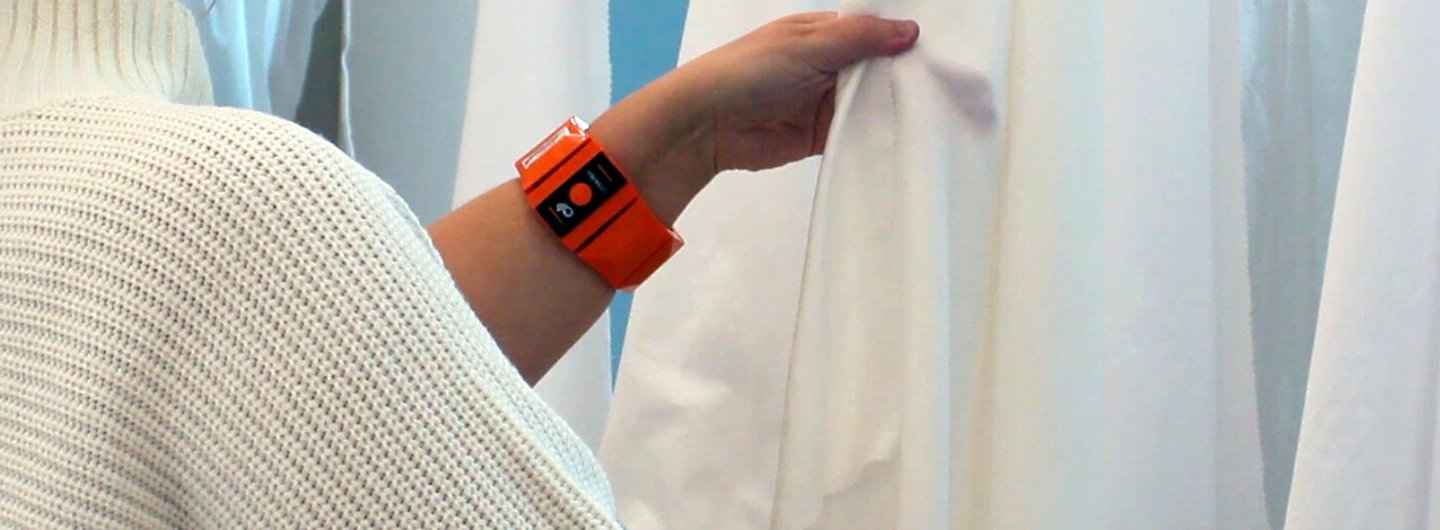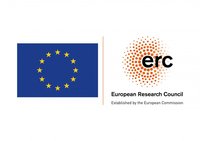
Key details
Location
- External (UK)
-
CHI 2023 Hamburg, Germany
Price
- Free
Who could attend
- Everyone
Type
- Workshop
A workshop exploring the role of material-enabled body-based multisensory experiences.
Call for participation
Over the last 15 years, HCI and Interaction Design have experienced a “material turn” characterised by a growing interest in the materiality of technology and computation, and in methods that support exploring, envisioning, and crafting with and through materials. The community has experienced a similar turn focused on the body, on how to best design for and from a first-person, lived experience, and the moving and sensual body. In this workshop, we focus on the intersection of these two turns. The emerging developments in multimodal interfaces open up opportunities to bring in materiality to the digital world as well as to transform the materiality of objects and bodies in the real-world, including the materiality of our own body. The different sensory qualities of (touchable and untouchable, physical and digital) objects and bodies, including our own, can be brought into the design of digital technologies to enrich, augment, and transform embodied experiences. In this “materials revolution” [15], what are the current theories, approaches, methods and tools that emphasise the critical role of materiality to body-based interactions with technology?
To explore this, in this workshop we will focus on five related themes: material enabling expression, material as a catalyst for human action, material enabling reflection and awareness, material enabling transformation and material supporting the design process for the re-creation of the existing and the yet-to-exist. This workshop with technology presentations, panel sessions with experts, and multidisciplinary discussions will: (i) bring together researchers who work on (re)creating sensory properties of materials through technology with those who investigate experiential effects of materials and material-enabled interactions, (ii) discuss methods, opportunities, difficulties in designing materiality and material-enabled interactions, and (iii) form a multidisciplinary community to build synergies and collaborations.
This workshop aims to build a community and open the design space for materiality and material-enabled body-based multisensory experiences by integrating research from various perspectives.
How to participate
We invite researchers, practitioners, and designers with an interest in designing and evaluating material-enabled body-based multisensory experiences and technologies, to submit position papers of up to 4 pages in single-column SIGCHI submission template (including references) stating their existing work, a conceptual design, or their position with respect to the workshop topic. Submissions should also describe a concept, prototype or method that will be brought and showcased at the workshop and include up to two discussion points and issues that participants would like to discuss in the workshop. We also welcome alternate submissions in the form of presentation slides, design sketches, videos and posters.
Authors must ensure the accessibility of their submission by following the SIGCHI Accessibility Guidelines (https://sigchi.org/conferences/author-resources/accessibility-guide/). This workshop aims to build a community and open the design space for materiality and material-enabled body-based multisensory experiences by integrating research from various perspectives.
Submissions can be made, by 25 February 2023, by completing a pre-questionnaire which includes demographic questions to help the organizers establish authors’ background. The submissions can be individual or group. If accepted, at least one author must attend the pre-workshop activity, the workshop at CHI2023 (in-person) and bring and showcase at the workshop their contribution (concept, prototype, method). All accepted submissions will be published on the website prior to the workshop.
Click here to apply.
Important dates
Submission of position paper: 25 February 2023
Notification of acceptance: 8 March 2023
Workshop date: 23 April 2023
Organisers
Bruna Petreca is a Research Fellow in Human Experience and Materials at the Materials Science Research Centre of the Royal College of Art. She co-leads the Consumer Experience Research Strand of the UKRI Interdisciplinary Textile Circularity Centre (textilescircularity.rca.ac.uk), and is a Co-Investigator on the project EPSRC Consumer Experience Digital Tools for Dematerialisation. These projects are developing new forms of interaction and new methods for materials experience, to promote a closer connection between people and materials.
Ana Tajadura-Jiménez is an Associate Professor at the DEI Interactive Systems Group, Universidad Carlos III de Madrid. She leads the i_mBODY lab (www.imbodylab.com) focused on interactive multisensory body-centred experiences, at the intersection between the fields of HCI and neuroscience. She is currently Principal Investigator of the MagicOutFit and the BODYinTRANSIT projects, which investigate the design of sensorial technology to alter people’s body perceptions and drive positive changes in emotional and physical health in populations with body concerns.
Laia Turmo Vidal is an interaction designer and currently a postdoctoral researcher at i_mBODY lab. Her research explores how interactive technologies can be designed and used to improve people’s body experiences, particularly in contexts of health and wellbeing. Her research interests include multisensory and wearable technology, embodied learning, social cooperation and the role of materials and materiality in embodied design processes.
Ricardo O. Nascimento is a Postdoctoral researcher in Human Experience and Materials at the Material Science Research Centre of the Royal College of Art. His research explores how new technologies challenge and enhance human perception with focus on on-body interfaces and hybrid environments.
Hasti Seifi is an assistant professor in the School of Computing and Augmented Intelligence at Arizona State University. At the intersection of haptics and HCI, she investigates the design process of haptic stimuli and people’s affective and cognitive schemas for haptic sensations. She has developed open-access haptic collections and authoring tools (e.g., [45], 46) as well as educational content ([20]LearnHaptics) that facilitate creation and adoption of haptics by a variety of designers and end-users.
Judith Ley-Flores is a postdoctoral researcher at the DEI Interactive Systems Group, Universidad Carlos III de Madrid. She is part of the magicOutFit project, and she explores how to use sensory feedback to alter the way people perceive their body, emotional state, and motor behavior. Her research interests are HCI, ubiquitous computing, sound computing for multimodal interfaces like wearable devices in combination with sound feedback to support activities in physical health such as motor therapies or physical exercise.
Aneesha Singh is an Associate Professor in Human-Computer Interaction at the UCL Interaction Centre. She is interested in the design, adoption and use of personal health and wellbeing technologies in everyday contexts, focusing on sensitive and stigmatized conditions. Her research areas include digital health, ubiquitous computing, multi-sensory feedback and wearable technology. She has previously worked in industry in various roles as a software consultant, and as a technical journalist.
Marianna Obrist is Professor of Multisensory Interfaces at UCL (University College London), Department of Computer Science and Deputy Director (Digital Health) for the UCL Institute of Healthcare Engineering. Her research ambition is to establish touch, taste, and smell as interaction modalities in HCI, spanning a range of application scenarios, from immersive VR experiences to health/wellbeing uses. Most recently, she published a book on ‘Multisensory Experiences: where the senses meet technology’.
Nadia Bianchi-Berthouze is a Full Professor in Affective Computing and Interaction at the UCL Interaction Centre. Part of her research focuses on how full-body technology and body sensory feedback can be used to modulate people's perception of themselves and of their capabilities to improve self-efficacy and copying capabilities.
Sharon Baurley is Professor of Design & Materials, and Director of the Materials Science Research Centre at the Royal College of Art. Sharon has a 16-year track record of leading UK research council-funded interdisciplinary projects totalling £10m. Her research is focused on interdisciplinary human-centred design methods to develop new ‘Product Cultures’ that de-couple the use of materials from human wellbeing and economic development.







